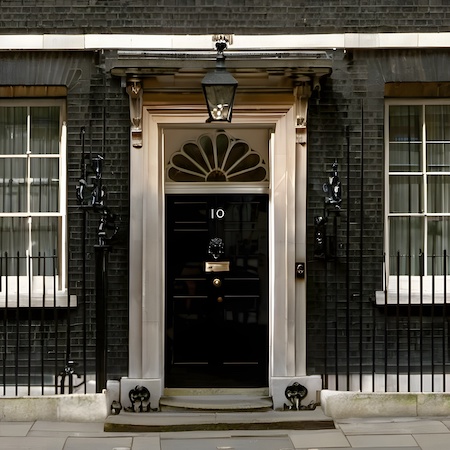The Institute for Public Policy Research (IPPR) has concluded its almost three-year enquiry into the interaction between health and the economy. The IPPR’s cross-party Commission on Health and Prosperity – chaired by top surgeon Lord Ara Darzi and Professor Dame Sally Davies, former Chief Medical Officer for England – has published its report aimed at kick-starting a once-in-a-generation rethink of national health policy, to revitalise both wellbeing and the UK economy.
This comprehensive plan for a modern 21st century health creation system comes as austerity and Covid have left the UK the literal sick man of Europe – with long-term health conditions rising, healthy life expectancy stagnating, economic inactivity increasing, a growing mental health crisis, and regional health inequalities intensifying. Among its stark findings, the Commission reveals that almost 1,600 fewer infants would have died between 2020 and 2022, if improvements in infant mortality had continued at the same rate as between 2001 and 2015.
Health and economic performance
The Commissioners – who include Andy Burnham, Manchester mayor and a former health secretary, and Lord James Bethell, a former Conservative health minister - find that the UK’s worsening public health crisis is linked to our faltering economic performance. They say that better health is the most important medicine our economy needs for the faster growth that the new government has identified as one of its five key missions.
The final report from the Commission conducted new analysis which shows health could solve many of Britain’s most pressing economic challenges, including low growth and productivity. New findings include:
• If trends continue, economic inactivity due to sickness could hit 4.3 million by the end of this parliament, up from 2.8 million today. As of the end of 2023, an estimated 900,000 extra workers are missing from work.
• These 900,000 missing workers could mean an estimated £5bn in lost tax receipts in 2024, while better population health could save the NHS £18bn per year by the mid-2030s.
• Some occupations – including elementary occupations, and caring, leisure and service roles - have seen particularly high rates of workers becoming inactive due to sickness. The rate of inactivity due to sickness is highest among the working age populations of Northern Ireland, the North East and Wales.
The Commission, which began working in early 2022 and was first to identify economic inactivity due to sickness as a major post-pandemic challenge, has concluded that better health is Britain’s greatest untapped path to prosperity.
Health creation system
At the core of the Commission's recommendations is to move from a reactive, sickness orientated 20th century healthcare system into a proactive 21st century health creation system, working in parallel to the ‘sickness service’ provided by the NHS.
The tenth and final output from the Commission sets out its bold plan to move beyond only intervening when people get sick, towards a system which creates good health in all realms of life - including work, school and home.
The overarching goal for the health creation system would be to add 10 years to healthy life expectancy by 2055 and to halve regional health inequalities.
To do that, the Commission sets out an “oven-ready” first parliament policy programme for the new government’s health mission – covering a new childhood health programme, a comprehensive health industrial strategy to penalise polluters and support innovators, nationwide restoration of critical community infrastructure, higher standards for health at work and more integrated health and employment support services.
Specific proposals include:
• Tax health polluters: including tobacco, alcohol and unhealthy food companies to raise over £10 billion per year by the end of the parliament, which could fund new good health schemes such as a fresh fruit and vegetable subsidy
• Establish ‘Health and Prosperity Improvement (HAPI) zones’: modelled on Clean Air Zones, with new powers and national investment to rebuild local health infrastructure – such as swimming pools and green spaces – in the most health-deprived areas
• A ‘right to try’ for people on health or disability benefits: an ironclad government commitment of a guaranteed period where people in receipt of benefits can ‘try’ work with no risk to welfare status or award level, lasting months, for everyone with a long-term condition or disability, regardless of what other reforms to health benefits look like
• A new ‘neighbourhood health centre’ in every part of the country: a one-stop shop for diagnostics, primary care, mental health and public health with a focus on prevention
• Create a new health index: Like GDP, the health index will provide a snapshot of how the nation's health is changing - in a single number - to help monitor progress.
The Commission also proposes a ‘new beginning’ for childhood health, with a future generation health plan including universal free school meals, restoration of Sure Start and an end to the Two Child Limit. Just as education is seen as an investment in children’s wellbeing today and economic prospects tomorrow, so should childhood health be seen as key to our long-term economic outcomes, the report contends.
Chris Thomas, head of IPPR’s Commission on Health and Prosperity, says: “We are not the first generation to face a reckoning with our health. Indeed, one of Britain’s proudest legacies is its history of bold action on health crises. The Victorian answered infectious disease outbreaks with sanitation, slum clearance and worker rights. Post-war, we answered rising acute need by extending universal healthcare coverage.
“In 2024, we face a health crisis just as pronounced – with unthinkable human and economic cost. We have set out to find an answer just as bold as those that came before it. Founding a health creation system is a way to fundamentally reimagine health policy – fit for the 21st century.”











